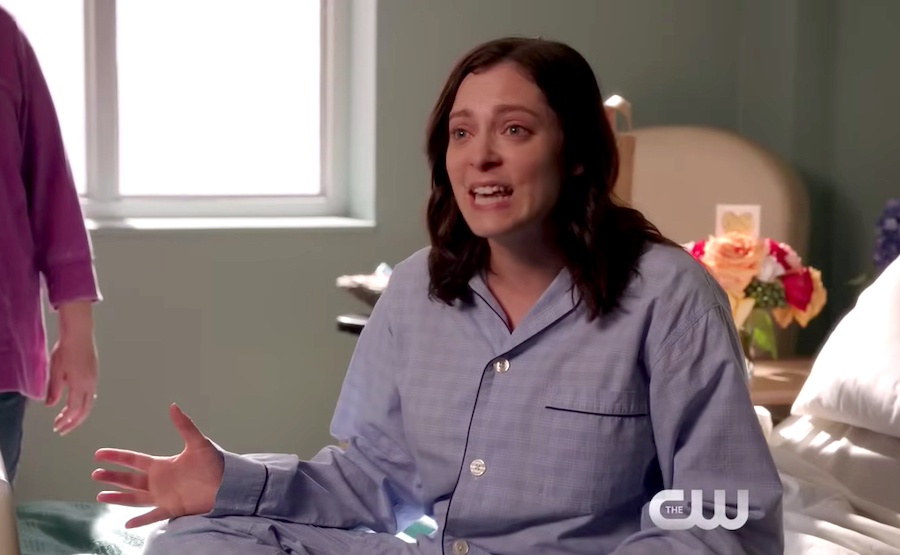7 TV Shows With Excellent Representations of Mental Illness

When looking for a great television series to watch, some people look for relatability so that they can connect with the characters. One way to achieve that is through the representation of different mental illnesses. After all, most people deal with mental health disorders in one way or another, and these disorders can shape many people’s lives. Therefore, television watchers may want to see characters who have gone through similar experiences. However, sometimes in the media, mental illnesses are not portrayed well, as they are either shown to make a character look inhuman or they try to exploit the illness for sympathy points. Nevertheless, that does not mean all representations of mental illness are bad. In fact, there are plenty of wonderful depictions of mental illness that display the characters working their way through life. There are fleshed-out characters that people can relate to. Here are some examples of the best representations of mental illness on television.
1. "Girls"
When it comes to mental illnesses, the symptoms can sometimes lay dormant for a while before they come back fiercely. When that happens, it is like you cannot remember the world where you were functioning properly. That happens to Hannah Horvath in "Girls". When she was a child, she dealt a lot with obsessive compulsive disorder (OCD), specifically the type that required her to count everything. After a while, she got over a lot of the symptoms. However, in her mid-20s, when she gets stressed out about a deadline, her symptoms come back. She feels the need to count everything she does, usually in intervals of eight, in order to function. That leads to situations like getting a cotton swab stuck in her ear because of how many times she pushed it in. This show is demonstrating that, even though symptoms come and go, the illness will always be a part of you. It can be extremely difficult, and Hannah does not know why she needs to do all of the counting, that is just how mental health works sometimes. Stream on Max.
2. "Crazy Ex-Girlfriend"
A person can have everything going for them in life, but they could also be dealing with serious mental health problems on the inside. That is the life of Rebecca Bunch on "Crazy-Ex Girlfriend". Rebecca is a Harvard and Yale-educated lawyer who works for a big New York City law firm and does a great job at her job. However, one day she decides to suddenly pack up all of her things and move to Los Angeles to follow her summer camp boyfriend from decades ago so that she can recapture that summer camp happiness. That path is not one that most people take. Rebecca makes a lot of rash decisions in her life that come out of nowhere. Eventually, Rebecca gets diagnosed with borderline personality disorder, which explains all of the main moments that she sometimes has. Rebecca has also had a complicated past with family issues, which has furthered some of these problems. In this series, it shows that Rebecca is capable of doing well and being likable, but there will be many times where wild personality changes mix up her life. Stream on Apple TV and Netflix.
3. "Mr. Robot"
It is one thing to see someone going through mental health struggles from an outsider’s perspective. In "Mr. Robot", viewers see life and mental health through the eyes of hacker Elliot Alderson. Elliot is a cybersecurity engineer who spends his time hacking different people. Soon, he is hired by Mr. Robot to be a hacktivist, which could affect the course of Elliot’s life. Elliot is dealing with many mental health disorders, such as depression, social anxiety, and dissociative identity disorder. Since we see the series through Elliot’s eyes, we see his delusions, which he often does not realize are delusions, and him closing himself off from the world. We also see him battle addictions to various substances to deal with these illnesses. There has been criticism for many types of media that portray dissociative identity disorder and how they have portrayed people with the disorder as weird and evil. However, "Mr. Robot" shows Elliot as a guy who may be suffering, but he is still human and is trying to figure out his reality and his emotions. Stream on Prime Video.
4. "Degrassi: The Next Generation"
Mental health problems can sometimes be really tough when you are a teenager. These are the times when you are trying to figure out your future, deal with all of your classes, and navigate high school drama. Adding a mental illness to that can make life a lot harder. "Degrassi: The Next Generation" demonstrates those problems with many characters. There are some characters that are bipolar, like Craig Manning and Eli Goldsworthy. They have moments where they are totally calm, and then they make impulsive decisions, act super possessive, or are just bouncing off of the walls for seemingly no reason. Then there are characters like Cam Saunders, Maya Maitlin, and Ellie Nash, who all have depression, and it can be hard for them to move forward in their lives. There’s also Connor Delaurier, who is on the autism spectrum and is trying to figure out how to connect with his peers. There are many more students who have mental illnesses. "Degrassi" wants to show the real high school experience, and mental health problems are a part of that. Stream on Max, Prime Video, Pluto TV, and Tubi.
5. "You’re the Worst"
Everyone will have a different experience when it comes to mental illnesses. That means they can have different effects on people’s day-to-day lives. In "You’re the Worst", Gretchen Cutler displays one perspective on how depression can affect people. Her depression is not so obvious when the series begins. However, as it goes on, we start to see these moments of Gretchen hiding her need to cry and faking happiness at public events. She then starts to become more and more emotionally numb to a point where she can barely fake happiness as it has been so long since she actually felt happy. Gretchen then goes on depression medication, but the symptoms still seep through and they can cause points of self-sabotage in her personal and professional life. Depression is always a part of Gretchen. Even though it can be stronger on some days than others, Gretchen is showing that it is never an easy or fun experience, and sometimes all she can do is just not give up. Stream on Hulu.
6. "Jessica Jones"
Mental health disorders can happen to anyone. They could even happen to superheroes, as superpowers can not cure everything. That is clear with the titular character of Jessica Jones. The series is about a former superhero, Jessica Jones, who becomes a detective, but then she is called to return to her old life of being a superhero. Jessica quit her superhero career because of the way she was attacked and violated by the villain, Kilgrave. That led to her diagnosed Post-Traumatic Stress Disorder, commonly known as PTSD. The pain sticks with Jessica, and the incident is on her mind often. She has found some ways to cope and sees a therapist to process what has happened to her. However, it has also caused Jessica to push away a lot of the people of her past and has caused her to be anti-social and closed off. She barely knows who she is anymore. All of this pain demonstrates how much this trauma affects Jessica’s life, and that any sort of trauma can change someone’s personality and fundamentals. Stream on Disney+.
7. "BoJack Horseman"
People may not expect to get honest depictions from a comedy series about anthropomorphic animals living in a fake Hollywood. However, what can seem comedic on the outside can have raw depictions of struggles on the inside. That is the case for "BoJack Horseman" and its many characters. For example, the character Diane Nguyen deals with serious depression but does not want to be medicated because she thinks it keeps her creative. However, when she does get medication, she is still making great work. On the other hand, BoJack chooses to self-medicate his problems, like trauma, insecurities, and slight depression, away with alcohol. That demonstrates the self-destructive pattern that occurs when you don’t get help. There are many other characters that are dealing with mental health problems that affect their relationships. That demonstrates how mental health problems vary for people and it is their reactions that shape them as a person. Stream on Netflix.



